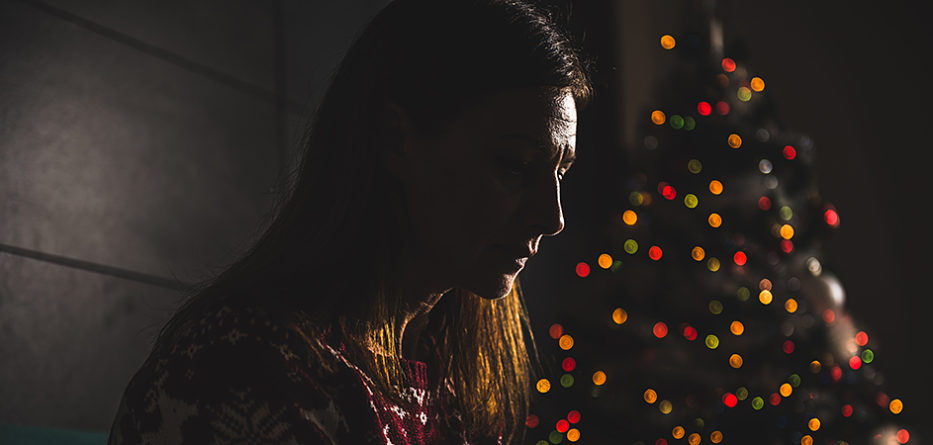Christmas is one of the most joyful times of the year for Christians, but for a growing number of mostly women and children living in fear of domestic violence, it can also be a dangerous flashpoint.
Tracy McLeod-Howe, Head of Safeguarding in the Diocese of Parramatta, who has previously worked as CEO of Domestic Violence NSW and run women’s refuges, says Christmas is a time when underlying tensions can often spill over into violence.
“In the women’s refuge setting, Christmas is sadly the busiest time,” she says.
“Alcohol will unleash existing behaviours, as well as the pressures of family members being together and the high expectations that come with the narrative that everything should be perfect at Christmas.”
While Christmas can be a particularly dangerous time, the 2022 Australian Catholic Bishops’ Social Justice Statement entitled Respect: Confronting Violence and Abuse, calls on the faith community to be alert to the issue of domestic violence at all times, and to listen and act, where necessary.
“The teaching of Christ urges us to promote relationships marked by respect and freedom rather than coercion and control,” says ACBC President, Archbishop Timothy Costelloe SDB.
“The virtue of solidarity challenges us to support those who are seeking justice in the face of such widespread violence.
“The message of the Gospel is not a message of domination of one person over another but a message of mutual esteem and kindness.”
Ms McLeod-Howe says the bishops’ statement, issued for Social Justice Sunday, was strong and timely, given the prevalence of domestic and family violence in the community.
“I thought it was important that they named the different cohorts of people in the community, especially women, who are impacted by domestic violence, particularly indigenous communities, and that the document included the voices of so many women,” she says.
“The statement is prefaced from actual policy positions and research, so the bishops are not trying to deviate from the huge amount of work that experts in this field have done, but to build on it and that gives the statement a lot of credibility.
“It also reflects the wonderful work being done in this space on the ground by faith-based organisations.”
Tracy says the Diocese of Parramatta Office for Safeguarding is working on a number of fronts to address domestic violence, including supporting clergy in their role of speaking out against violence and supporting those who may be affected.
“We are running a domestic violence training program online and have previously worked with the NSW Police Multicultural Office to support women in those communities who might be living with domestic violence,” she says.

The Iris app, produced in part by the Diocese of Parramatta Office for Safeguarding. Image: Diocese of Parramatta
“In addition to that, we are using the Iris app, which is a journalling tool for Christian women to observe when things don’t feel right in a relationship and note any red flags that come up.”
The bishops’ statement also alerts people to the perpetration of spiritual violence and abuse.
“Denigrating a person’s religious beliefs, spiritual practices, or culture, preventing them from practising their faith or culture, forcing them to participate in religious or cultural activities, or ‘manipulating religious teachings or cultural traditions to excuse violence’ or to exert control over them, are all examples of spiritual violence and abuse,” the statement says.
The bishops say that the Bible cannot be legitimately interpreted to justify male power and control over women and children.
“The Catechism of the Catholic Church does not support the idea that men are superior to women and entitled to dominate them. Canon law does not encourage, much less require, women to remain in violent or abusive marriages. Church teaching on the family affirms that in cases of violence and abuse separation can be ‘morally necessary’ for the safety of victims.”
Tracy says the best thing that women can do when experiencing abuse or violence is to “talk to someone you trust”.
“Seeking professional advice is best, but if that seems too big a step, then just open up to a friend or family member you can trust because just letting the secret out to somebody can bring freedom and the possibility of taking further steps to safety,” she says.
“If someone you know is in immediate danger, you must call the police. It can be a difficult thing to do, but you could save a life.
“And, as the bishops say in their statement, one of the biggest things we can do to support women facing domestic violence and abuse is to listen to them and believe them and never judge them.”
- Keep a journal and write down any behaviours that might be a red flag for possible abuse.
- Listen to any family members, friends or members of the church community who share stories of abuse or violence. Believe them.
- If you have concerns about your own situation or somebody else’s call 1800RESPECT to get advice from trauma-informed counsellors.
- Call the police 000 if you believe anybody to be in immediate danger.
Debra Vermeer is a freelance journalist and contributor to Catholic Outlook.
This article was originally published in the 2022 Advent | Summer 2022 edition of the Catholic Outlook Magazine. You can pick up your copy of the magazine in parishes and offices across the Diocese of Parramatta now or you can read the digital version here.








